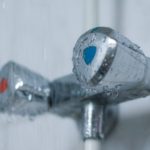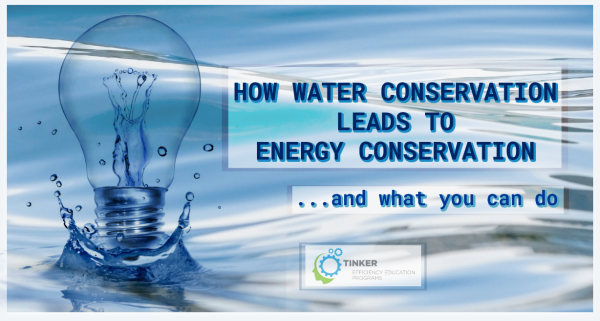Did you realize water conservation can leads to energy conservation?
Now that we’re in the thick of winter, you may not be thinking much about water conservation. After all, you use more water in the summer, right? Between filling up the pool and making sure lawns are properly watered, it’s true that there is a lot of over-usage in the warmer months. But, overusing water in the winter can be just as problematic.
The worst part? Most people don’t even realize it.
Water conservation is important for many different reasons, but did you know how much conserving water can actually help to conserve energy?

Winter Storms and Water
We’re currently in the midst of incredibly cold temperatures throughout the country. Even states that don’t often see cold weather, like those in the South, are experiencing temperatures they aren’t used to. If you’re not sure how to react to cold weather, you might be doing whatever it takes to stay warm and keep things running smoothly.
Unfortunately, when you prepare for a winter storm, or utilize things around your house that you wouldn’t typically use, you could be burning more energy than you realize. What’s more, some states are experiencing depleted water sources, like Louisiana.
California is another great example of why water conservation can lead to energy conservation.
Recently, it was discovered that the water issues in Louisiana were becoming even worse, as people were letting their pipes drip so they wouldn’t freeze. This isn’t necessarily a bad idea. It’s better to have a slow-dripping pipe than to have one burst open and waste gallons of water. But, when hundreds of households do the same thing, those small drops of water add up quickly. This causes the sewer systems to have to work harder to pump clean water through the cities. In turn, more energy is used.
 Heating Things Up
Heating Things Up
One of the biggest energy wasters that has to do with water in the winter is heating it up! Nothing sounds better than a hot shower on a cold day, but the more you use your water heater, the more energy you’re burning. Hot water is used all year round, but it may take a bit longer for your water to get warm if your pipes are cold. So, you’ll be running it longer.
Some tips you can use to conserve water (and energy) in the winter and all year long include:
- Washing clothes with hot water less frequently. If you must wash with hot water, try to load up your washing machine with more items.
- Take less showers, faster showers, or cold showers! It might sound uncomfortable at first, but some research suggests that cold showers can even be beneficial to your health.
- Use the same concept for your dishwasher as you do for your washing machine. Always make sure you’re washing a full load before running a cycle. Not only will this allow your hot water heater to kick on less frequently, but you’ll use less electricity from the washer itself, too!
There are many ways to save water and save energy at the same time, especially in the winter. Whether you live in an area where there is a depletion of water or not, you could be helping yourself and those around you immensely by keeping water conservation at the forefront of your mind.

